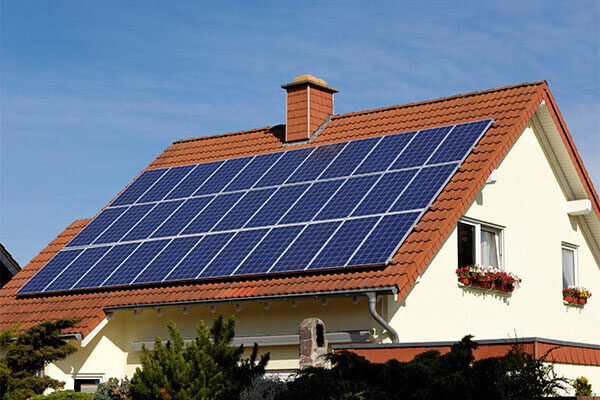Developing the Decree on the development of self-produced and self-consumed rooftop solar power to ensure feasibility
The announcement affirms that regulations on mechanisms and policies to encourage the development of self-produced and self-consumed rooftop solar power are very important to mobilize social resources to promote the development of renewable energy, meet the expectations of people and businesses, and contribute to reducing investment pressure on power source development for the state, especially the development of renewable energy with storage systems is an important basis for early adjustment of the structure of power sources, reducing power sources using fossil energy, reducing greenhouse gas emissions according to commitments at COP26.
To speed up the progress of developing this Decree, ensure its quality, feasibility, and suitability when it is issued and put into practice, and be effective, absolutely not leaving any loopholes, taking advantage of policies, or creating a request-grant mechanism, Deputy Prime Minister Tran Hong Ha requested the Ministry of Industry and Trade (MOIT) to complete the concept of "self-production, self-consumption" for rooftop solar power; in which, the rate of selling surplus electricity is added to clarify the content of self-production, self-consumption solar power, the amount of electricity produced is consumed at 90% of the total capacity and sold to the national grid is not over 10% of the total capacity.

Illustration photo
At the same time, it is required to research and base on the practical basis of power sources, and structure of power sources according to the characteristics of each region to have policies to encourage and mobilize solar power for each region and area appropriately. Accordingly, it is necessary to research and calculate reasonable and scientific bases to regulate the rate of selling surplus electricity to the grid in the direction that the Northern region can sell surplus electricity to the grid at 20% of the total capacity; the Central and Southern regions can sell surplus electricity to the grid at 10% of the total capacity. The structure of solar rooftop power capacity in the Northern region must be given higher priority than other regions (because the mobilization rate in the Northern region is still low, high loads can be mobilized at a higher rate).
The Deputy Prime Minister also requested MOIT to clarify regulations on electricity connected to the national grid and electricity not connected: For rooftop solar power not connected to the national grid, there will be no capacity limit, and at the same time, registration procedures and processing time for this form must be simplified as much as possible. For electricity connected to the national grid, consideration should be given to users or service hirers investing in solar panel systems so that they are equally applied in this Decree.
Regarding electricity prices, MOIT is studying the solution of the surplus electricity generated on the grid that EVN buys, which can be considered for compensation when people buy electricity from EVN; or the surplus electricity price, EVN can buy it based on the market price at the time of the lowest electricity price offered on the electricity market. Regarding preferential policies, MOIT is studying to add more preferential policies for the case of investing in rooftop solar power for use with the installation of an electricity storage system, which is like a base power source, so there is no limit, 100% of the surplus capacity can be purchased and there are support plans for prices, taxes, interest rates, installation costs, etc.
Develop and submit to the Prime Minister a pilot offshore wind power development project.
Resolution No.55-NQ/TW dated February 11, 2020, of the Politburo on the orientation of Vietnam's National Energy Development Strategy to 2030, with a vision to 2045, mentions the development of support policies and breakthrough mechanisms for offshore wind power development associated with the implementation of Vietnam's Marine Strategy.
Implementing the Party's policies, the Prime Minister and Deputy Prime Ministers have also issued many directive documents, including assigning the MOIT to preside over and coordinate with relevant ministries, branches, and agencies to study and develop a pilot project for offshore wind power development and study to assign the state-owned economic groups (PVN, EVN) or the Ministry of National Defense to implement pilot projects.
Translator: Mạnh Hùng
Share